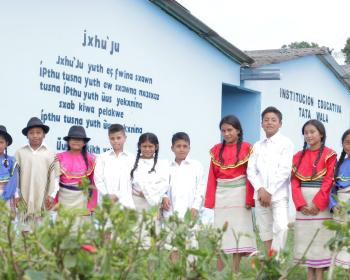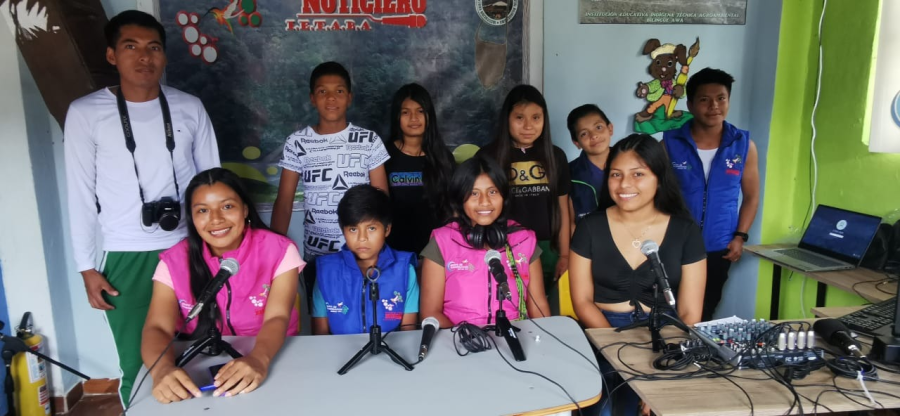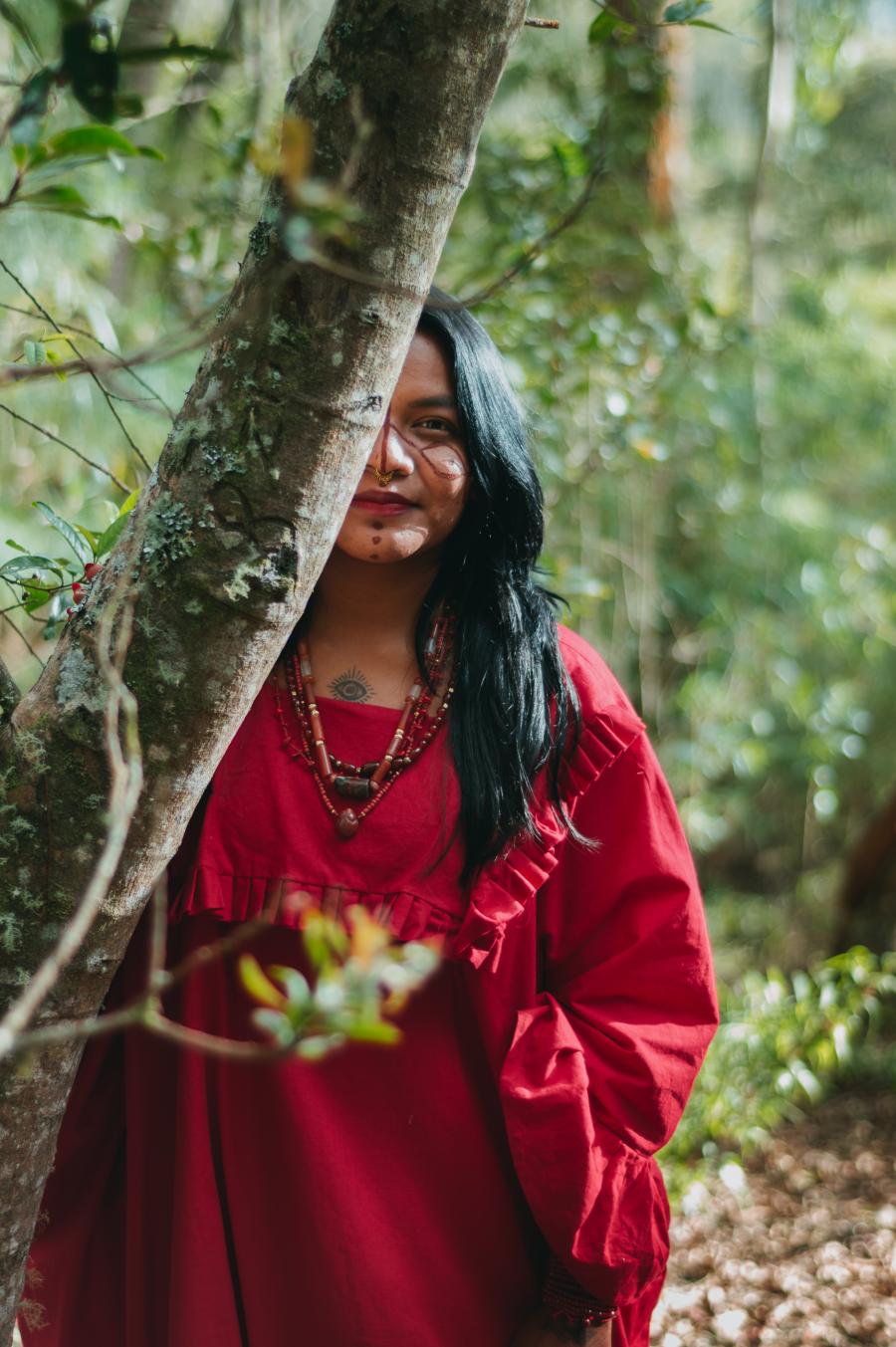New Alliance Fighting Development in the Choco
Indigenous people and non-indigenous black people in the Pacific coastal region of Colombia have joined forces in an unprecedented show of solidarity to defend their lands and livelihoods. Known as "the Choco," the region is slated for mammoth development - a series of hydroelectric dams, pipelines, new ports, and roads - under the Colombian government's grandiose Plan Pacifico (Pacific Plan). The immense government project also targets the region's tropical forests for logging and mining, and includes plans to link the Pan-American highway from points north and south of the Choco.
The Choco is one of the most biologically diverse regions on earth. The Andes mountains create a tremendous range of habitats, from cloud forests to the mangrove swamps that line the coast. The Choco also boasts the world's heaviest rainfall, from 276 to 394 inches per year. This reality of drenching rainfall alone indicates just how irresponsible the government's plans are. Within days of bulldozing for roads, the rains will wash the soil away forever. Until recently the rain forests have been relatively undisturbed, but satellite photos are already detecting a surprising level of deforestation.
The Choco's 800,000 black inhabitants, who have lived in the region for 500 years, are very poor. The Colombian government doesn't permit them to own land, nor does it legally recognize them. The region's 15,000 Indians - mostly Embera and Waunan - fare slightly better in economic and political terms, though they are equally at risk from the government's plans.
Indigenous and black groups in the Choco have historically had little to do with one another, and have only recently begun working together. In June 1993, Cultural Survival (Canada) hosted Fabio Pirazza, an indigenous leader from the Embera and Waunan Regional Indigenous Organization (OREWA), and Marina Gonzales of ACADESAN, a black organization from the Choco. They told us that the Colombian government has yet to reveal the full extent of Plan Pacifico to the public, and has never consulted with either group about its development plans.
Last year OREWA blockaded the Pan-American Highway with the support of non-indigenous black groups, forcing the government to halt highway construction pending an environmental impact study. The government asked OREWA to do the study - without any government funding. Although OREWA agreed to conduct the study, it needs technical assistance and funds. Another blockade against an oil pipeline is still holding.
Among Plan Pacifico's many elements is a "land canal" stretching from the Caribbean coast across the northern end of Colombia to the Pacific Ocean. Intended as an alternative to the Panama Canal - which the government views as less secure now that it's no longer under U.S. control - the land canal will be accompanied by a major highway, pipelines, and train tracks.
Coastal development plans are already imposing severe hardship on Indian and black fishing communities. The government is promoting large-scale commercial fishing by encouraging factory trawling ships in coastal areas and outlawing non-commercial fishing, thereby forcing local fishing communities to depend on the market for food. Adding insult to injury, the government also plans to develop speedboat-racing lanes throughout the region's coastal mangrove swamps.
As part of an effort to build solidarity with aboriginal groups in Canada, Ted Moses, the Grand Council of the Cree's ambassador to the United Nations, traveled from Quebec to the Choco with a delegation from the Assembly of First Nations in October 1992. The Grand Council of the Cree are committed to sharing their technical expertise in assessing major development projects with OREWA. The Cree have been fighting large-scale hydroelectric development in the James Bay region of northern Quebec for over 20 years. In June 1993, Moses spoke at a Cultural Survival (Canada) information session on the Choco as part of the UN Commission on Sustainable Development's non-government program in New York.
Cultural Survival (Canada) is seeking the support of other groups for OREWA. If you can help or have useful contacts, please contact CS Canada, Suite 620, 1 Nicholas St., Ottawa, ON Canada K1N 7B7(613)233-4653 and OREWA,AA285, Quibdo, Choco, Colombia.
Clayoquot Sound Action Continues
British Columbia's recent approval of logging in Clayoquot Sound, a heavily-forested region on the west coast of Vancouver Island, is one of the most high-profile environmental issues in Canada. Billed as a "compromise", the government's decision has effectively condemned 74 percent of Vancouver Island's remaining ancient forests to intensive logging.
While environmentalists blockade logging roads to save the forest, native concerns are receiving less attention. There are six native tribes in the Clayoquot Sound area: the Ahousat, the Hesquaht, the Tia-o-qui-aht, the Uccluelet and the Toquaht. Part of the Nuu-Chah-Nulth Nation, these tribes hold land claims over forest areas that the British Colombia government has turned over to logging companies, and are participating in the logging blockades.
In a show of solidarity with the Nuu-Chah-Nulth, Cree protesters from Canoe Lake, Saskatchewan - the architects of Canada's longest-running blockade - came to Clayoquot Sound to symbolically "twin" with native protesters.
If you would like information on Clayoquot Sound, please contact CS Canada at the above address.
Article copyright Cultural Survival, Inc.



